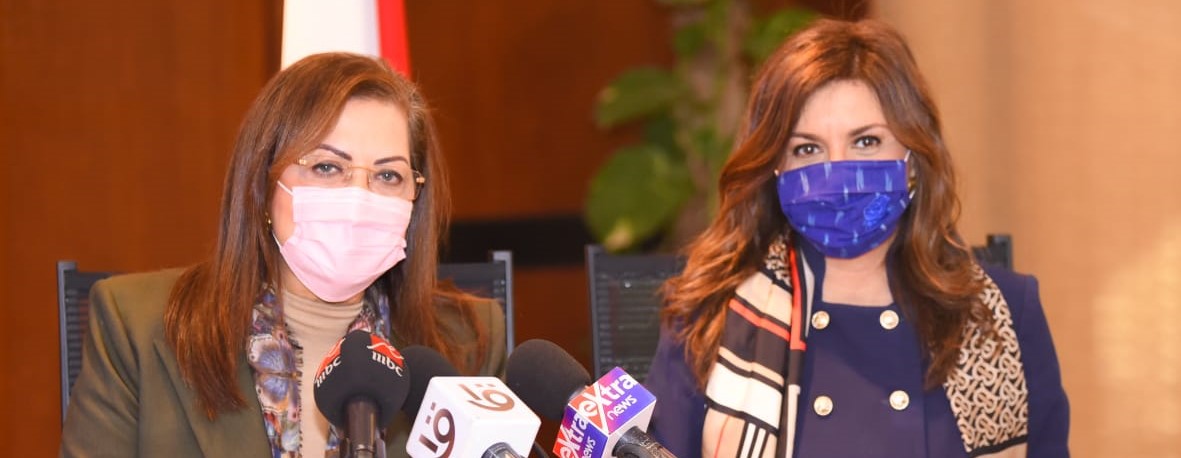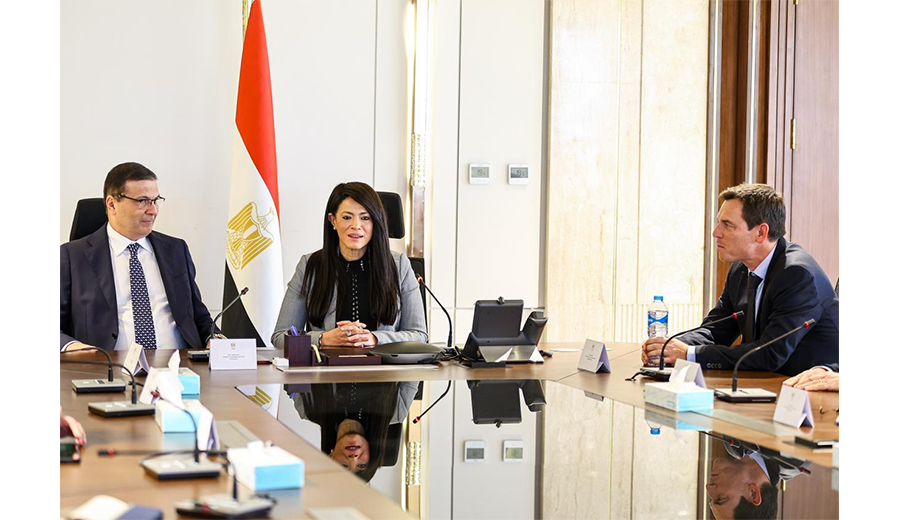Planning, immigration ministers launch the website of the “Nourat Baladk “initiative

25 March 2021
In continuation of coordinating efforts between ministries and relevant state institutions, to achieve the state's vision for sustainable development 2030, the Ministries of Immigration and Planning and Economic Development launched a website for the initiative "Nourat Baladk".This is in the context of President Abdel Fattah El-Sisi's directives on the necessity of absorbing Egyptian workers returning from abroad affected by the Corona pandemic; and work to integrate this employment into the national economy in various governorates, as part of the government's plan to confront the repercussions of the spread of the new Coronavirus.In this context, the Minister of Immigration explained that the site represents the 3rd phase of the “Nourat Baladk" initiative, which started with the registration of data and paper with the onset of the crisis of returnees from the Gulf States where the Ministry immediately cooperated with the state ministries and institutions in the rehabilitation and training of Egyptians returning from abroad and put the available job opportunities in their governorates in cooperation with the ministries of planning, economic development, trade, industry, and local development.The second phase was followed by the launch of electronic registration forms in cooperation with the Ministry of Planning, which resulted in providing them with job opportunities in cooperation with Egyptian investors abroad, in the framework of achieving the UN goals of sustainable development, by providing job opportunities and involving returnees in economic development.Ambassador Nabila Makram added that the site aims to create an accurate database that includes key information on returnees from abroad and those affected by the Corona pandemic, the professions they occupy and the skills available to them, and the methods of cooperation they choose, whether financing projects they intend to launch or training for career transfer, or providing various job opportunities, by registering through the following website:
https://nawartbaladk.gov.eg/
Makram added that this contributes directly to providing training programs that suit the skill and competence of each of them and enhancing these qualifications, to help create suitable job opportunities for them, in cooperation with various authorities.For her part, the Minister of Planning and Economic Development said that the initiative aims to strengthen cooperation between government agencies, implement economic plans by integrating Egyptians abroad, benefit from their skills to achieve comprehensive development, and support the political vision by investing in the human element, completing the first phase, which contributed In providing training and qualification opportunities for Egyptians returning from abroad.Dr. Hala El-Said added that efforts are being made to provide employment opportunities for workers returning from abroad in the labor-intensive infrastructure projects implemented in various governorates, to achieve the state's vision of employing the energies of young people and benefiting from their experiences, in implementation of the UN goals to achieve sustainable development.El-Said continued, that the ministry will work to provide financing packages for those wishing to work projects among the returnees, in addition to providing advisory services to workers returning from abroad and affected by the Corona pandemic and financing medium, small, and micro-enterprises, in addition to qualification and training for those wishing.El-Said emphasized that launching the website of the "Nourat Baladk" initiative aims to contribute to providing the necessary training programs for specialists in various fields, to qualify workers returning from abroad to work and enhance their skills in line with the needs of the Egyptian labor market.









